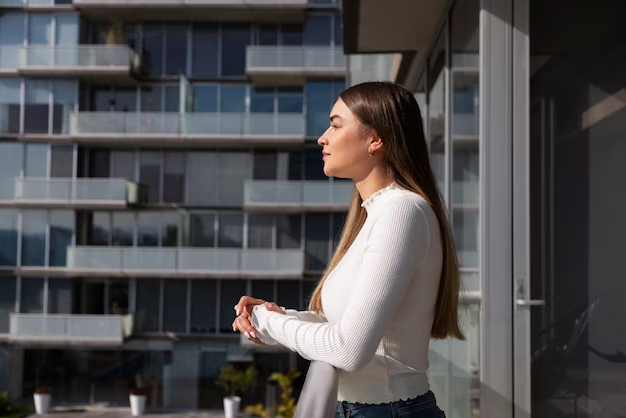Dubai’s real estate market is not only burgeoning but also offers a host of opportunities for foreign investors. The simple answer to whether foreigners can buy property in Dubai is yes, they certainly can. For those looking to buy an apartment in Dubai or any other type of property, the emirate has established a legal framework that allows non-GCC (Gulf Cooperation Council) residents to purchase, sell, and lease properties in designated areas. As a vibrant hub that continues to attract international attention for its luxury lifestyle, cutting-edge architecture, and favorable investment climate, Dubai extends its allure to foreign property ownership, living up to its reputation as a cosmopolitan city.
Introduction to Dubai’s Real Estate Market
With its towering skyscrapers, pristine beaches, and luxury shopping, Dubai has positioned itself as a global leader in attracting affluent real estate investors. The appeal of Dubai to foreign investors lies in its innovative projects and favorable government policies that support business and tourism growth. The property market in Dubai is renowned for its high-quality construction standards, state-of-the-art facilities, and diverse portfolio ranging from opulent villas to sleek apartments for sale in Dubai. An overview of property rights in Dubai indicates that the government has been proactive in creating a hospitable environment for foreign investors by delineating clear ownership rights and offering residence visas linked to property investment.
Legal Framework for Foreign Property Ownership
Understanding the legal intricacies is crucial for any foreign investor interested in real estate in the Emirates. Two principal types of property ownership await foreign investors—freehold and leasehold. In freehold areas, investors have outright ownership of the property and land, with no restrictions on the sale or lease of the property. Leasehold areas, on the other hand, involve leasing from a freeholder for a period typically ranging between 30 to 99 years. Property law in Dubai guarantees the rights of foreign owners in freehold areas, giving them a high degree of tenure security and investment peace of mind.

Steps to Purchasing Property in Dubai as a Foreigner
Embarking on the journey to property ownership in Dubai entails a series of methodical steps. Foreign buyers must first confirm their eligibility, which involves having a valid passport and, in some cases, a residence visa. Navigating the purchase process efficiently requires a clear understanding of the local market trends and legal requirements. To aid in this process, here is a simplified breakdown of steps:
- Choosing the Right Property: Decide on the type of property that meets your investment goals—be it a luxury villa, a downtown apartment, or a beachfront condo. When considering luxury real estate in Dubai, the options are vast, and the amenities can be truly opulent.
- Financing Options for Foreigners: Assess how you will finance the purchase, whether through cash, mortgage, or other financing arrangements with banks that cater to non-resident investors. For those wondering how much does it cost to buy an apartment in Dubai, prices can vary widely based on location, amenities, and size, with luxury properties commanding premium rates.
- Real Estate Agents and Consultants: Engage with reputable real estate agents or consultants who can guide you through the complexities of the Dubai real estate market, ensuring a smooth transaction.
Benefits of Investing in Dubai Real Estate
Investing in Dubai’s real estate carries with it a plethora of advantages. The potential for high returns on investment is a significant drawcard, with many properties appreciating due to the city’s growth and prestige. Additionally, taxation advantages abound, as Dubai does not levy income tax on individuals, which extends to property owners as well, making the prospect of investment even more enticing.
Considerations Before Buying Property
Before diving into a property purchase in Dubai, conducting thorough market research and due diligence is non-negotiable. Understanding cultural and legal nuances can facilitate smoother transactions and integration into the local community. When contemplating long-term versus short-term investment strategies, it’s essential to consider factors such as the city’s economic outlook, your personal circumstances, and changes in residency laws which can influence property investment success.

Living in Dubai: Lifestyle and Community
Adopting the Dubai lifestyle entails embracing a vibrant, cosmopolitan community characterized by luxury, innovation, and cultural diversity. Residential communities for expatriates are well-established, offering world-class amenities and a sense of belonging. These communities cater to various preferences and budgets and are designed to provide convenience and a high-quality living standard. They often include amenities such as schools, shopping centers, and recreational facilities, ensuring that residents have everything they need within close proximity.
| Community Name | Features | Amenities Included |
|---|---|---|
| Dubai Marina | Waterfront living, yachting hub | Malls, restaurants, beaches |
| Emirates Hills | Exclusive gated community | Golf clubs, lakes |
| Downtown Dubai | Heart of the city, iconic landmarks | Burj Khalifa, Dubai Mall |
| Palm Jumeirah | Unique palm-shaped island | 5-star hotels, beach clubs |
| Jumeirah Beach Residence (JBR) | Vibrant beachfront promenade | Retail stores, dining options |
Risks and Challenges of Buying Property in Dubai
Despite the attractive prospects, investing in Dubai real estate is not devoid of risks and challenges. Market fluctuations can affect property valuations significantly, making it imperative for investors to stay informed of market trends and economic factors impacting real estate prices. Additionally, potential regulatory changes could impact property owners, underlining the importance of staying abreast of any shifts in the legal environment.
Future of Dubai’s Real Estate Market
Dubai’s real estate market is constantly evolving, shaped by innovative government initiatives that promote foreign investment and infrastructural development. The government’s commitment to diversifying the economy and creating a sustainable environment for business and living has set the stage for robust growth in the real estate sector.
For prospective investors eyeing the future of luxury real estate in Dubai, it’s important to note the city’s strategic plans for expansion such as smart city projects and Expo 2020 legacy developments, which bode well for the sector’s long-term growth. As a result, predictions for the development of Dubai’s real estate market remain optimistic, suggesting that now may be an opportune time to invest.
The Dubai Plan 2021 outlines a vision for making Dubai a smart, sustainable city, and recent regulatory changes aim to further streamline processes and increase transparency, thereby enhancing Dubai’s attractiveness as a top global destination for real estate investment.
How to Protect Your Investment
To safeguard your investment in Dubai’s real estate market, there are several critical steps to consider:
- Insurance: Ensure comprehensive insurance coverage for your property to protect against unforeseen events such as damage or loss.
- Legal Support and Documentation: Employ the expertise of a lawyer experienced in UAE property law to oversee transactions and ensure all documentation is in order.
In addition to these measures, maintaining a well-managed property and establishing a contingency fund for maintenance and potential vacancy periods can further secure your investment. It’s also advisable to stay informed about changes in regulations and market dynamics that may affect your property’s value.

Conclusion: Making an Informed Decision
In conclusion, buying property in Dubai as a foreigner is not only possible, but it can also be a lucrative investment. With its strategic location, political stability, and unmatched luxury offerings, the emirate provides a real estate landscape ripe with opportunities. However, such decisions should not be taken lightly; they require careful consideration of market trends, legal implications, and personal investment goals.
Ultimately, the key to successful property investment in Dubai lies in thorough research, expert advice, and a keen understanding of the nuances of the market. By keeping these elements in mind and proceeding with due diligence, foreigners can make informed and rewarding investment choices in Dubai’s vibrant real estate market.
FAQs
- Is there a limit to the number of properties a foreigner can own in Dubai? No, there is no legal limit to the number of properties a foreigner can own in Dubai. As long as you fulfill the eligibility criteria and complete the necessary legal formalities, you can invest in multiple properties across freehold areas.
- Can a foreign property owner obtain residency in Dubai? Yes, Dubai offers various residency visa options linked to property investment. Investors meeting certain criteria, such as minimum property value, can apply for a residency visa, subject to approval by the UAE authorities.
- What are the typical fees associated with buying property in Dubai? Buyers should be prepared to cover fees including a 4% transfer fee to Dubai’s Land Department, real estate agent commissions typically ranging from 2% to 5%, valuation fees, and potential mortgage registration fees if financing the purchase.
- Can foreigners rent out their properties in Dubai? Yes, foreign property owners have the right to rent out their properties. However, they must adhere to the regulations set by the Dubai Land Department, including registering the tenancy contract and ensuring compliance with rental laws.
- How can foreign investors be assured of the legality of their property purchase? Foreign investors are advised to work with reputable real estate agents and legal professionals who have a strong track record and understanding of the local laws and procedures. Conducting thorough due diligence, verifying ownership documents, and ensuring the property is free of any liens or disputes can safeguard the legality of the purchase.
